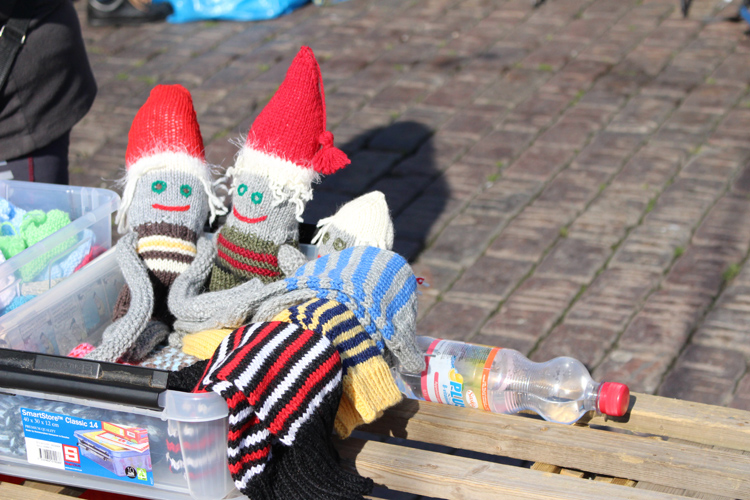
Finnish design?
Finnish Design is a huge thing in Finnland. In Helsinki, there is a growing district solely dedicated to design (Design District) and the annual Helsinki Design Week is a greatly advertized event where professionals and enthusiasts can join workshops, exhibitions and galleries featuring different projects with artists, shops, restaurants and museums. I was lucky enough to be in Helsinki during Design Week and learn a lot about Finnish Design. My first impression was that Finnish Design and nature are inseparable. Finland has a small population, its capital Helsinki is about as urbanized as it gets, and still it is surrounded by forests and lakes. Traditional lifestyle revolved around nature so it seems natural that Finns incorporate elements that are most important to Finnish life into their design. Repeated themes and objects are the birch tree, forest animals (bears, foxes, deer, wolves, squirrels, rabbits), fish, leaves and flowers. At the same time, young designers learn new techniques from other cultures as well, forming a truly interesting blend.
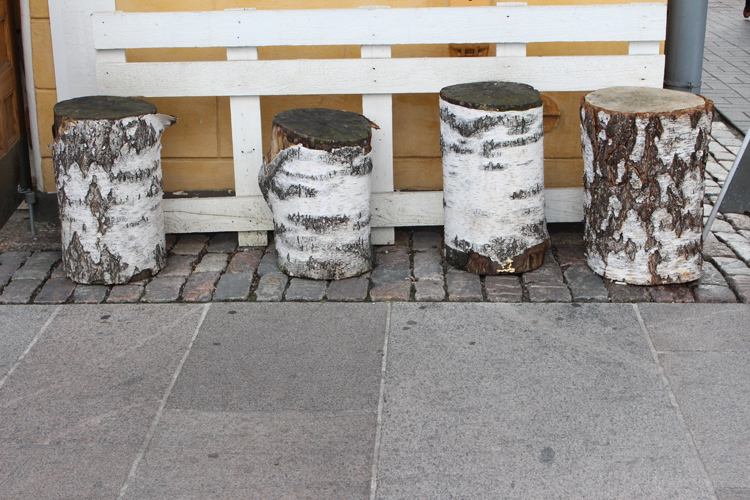
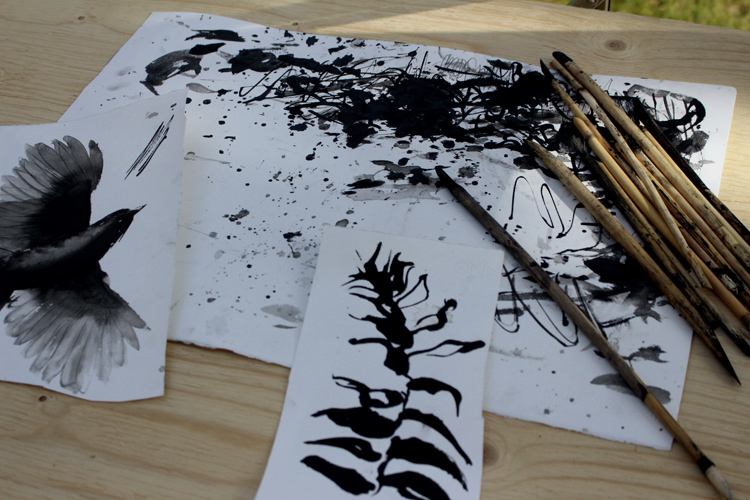
“forest greetings” by Teemu Järvi @ Helsinki Design Week
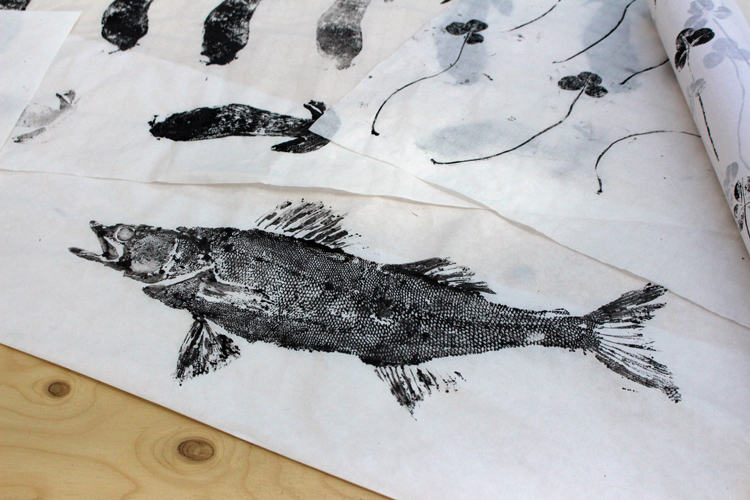
Wood is the most used material for anything from furniture or houses to kitchenware and utensils. Even modern interior design and furniture design rarely uses any other material than wood (often birch trees) to preserve this tradition.
For me, design and architecture are somewhat interdependent. Modern buildings with bright, open spaces and clean, geometric lines reflect the Scandinavian sentiment of calmness and reservedness.
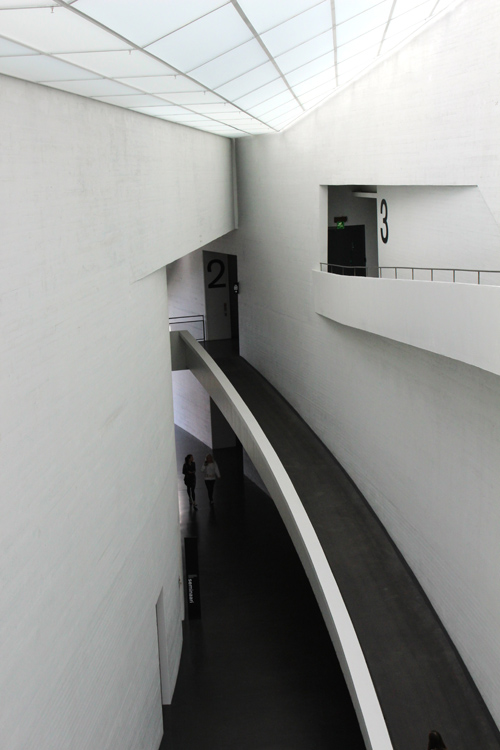
Kiasma, the contemporary art museum
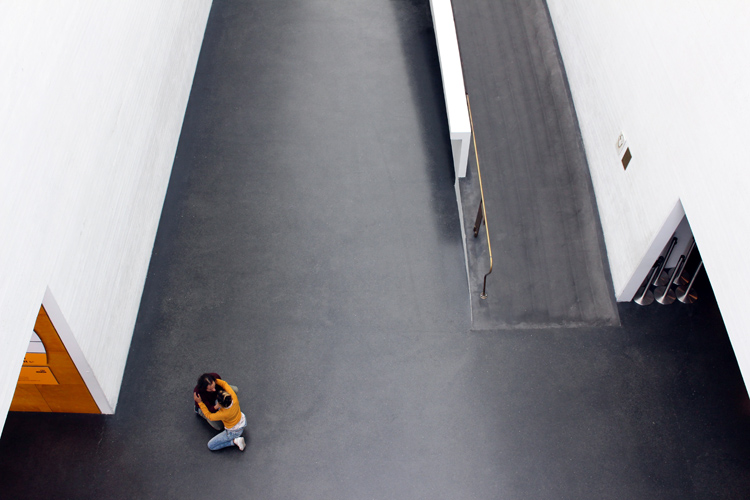
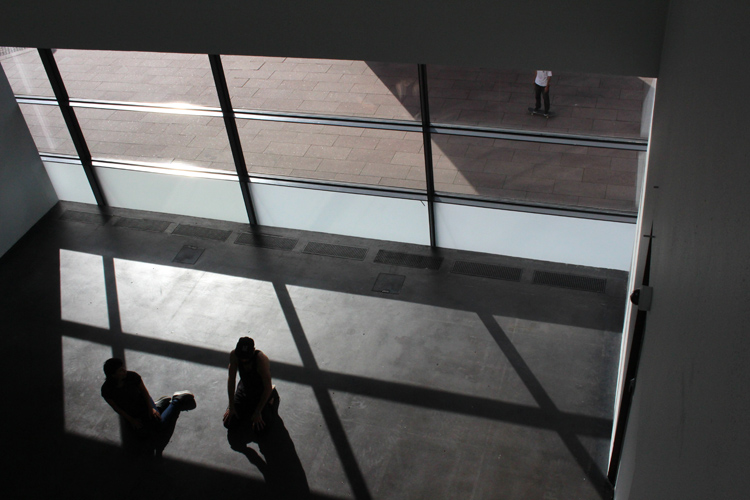
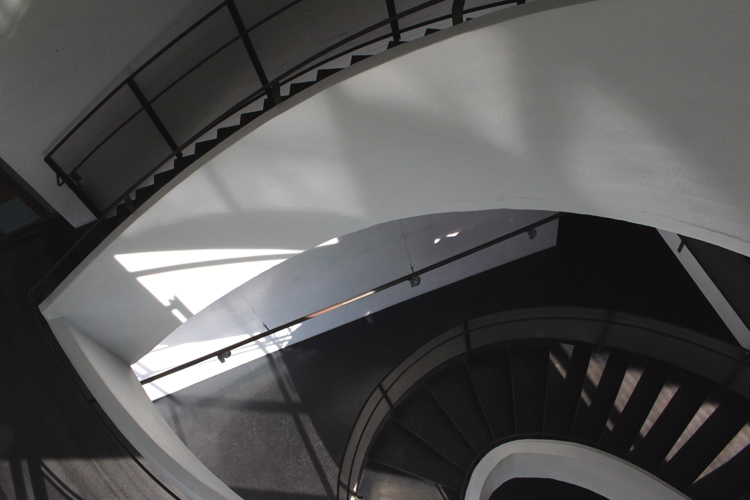
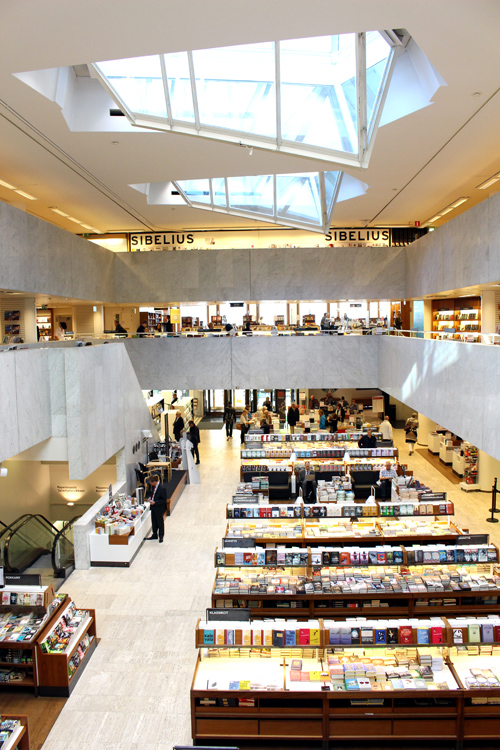
Academic Bookstore, definitely worth a visit
The Helsinki Design Museum held an exhibition on Finnish fashion which showed a great variety of clothing items from the last century. As winter is the longest season in Finland, clothing should follow function and protect from the wet and cold. Mostly, the clothing displayed was simple yet chic and functional. Finns were also one of the first to introduce unisex clothing items. Their speciality were clothing for extreme conditions like polar expeditions and motorcycling.
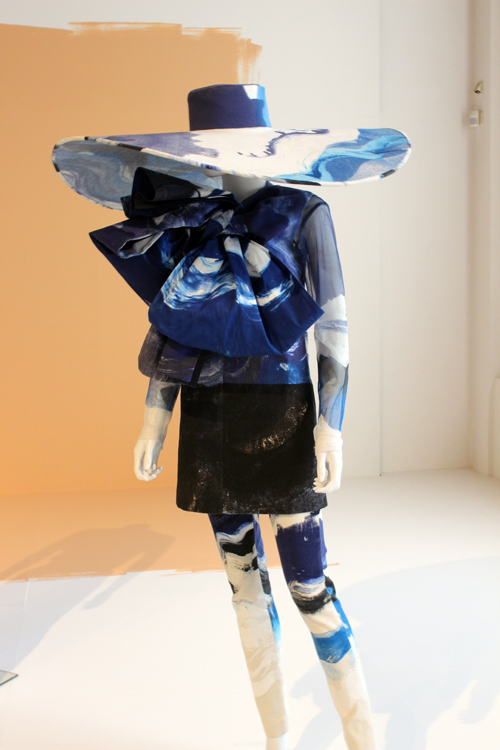
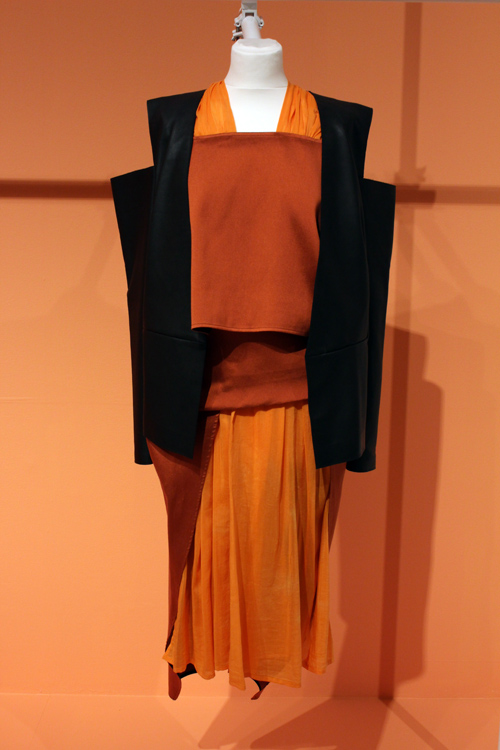
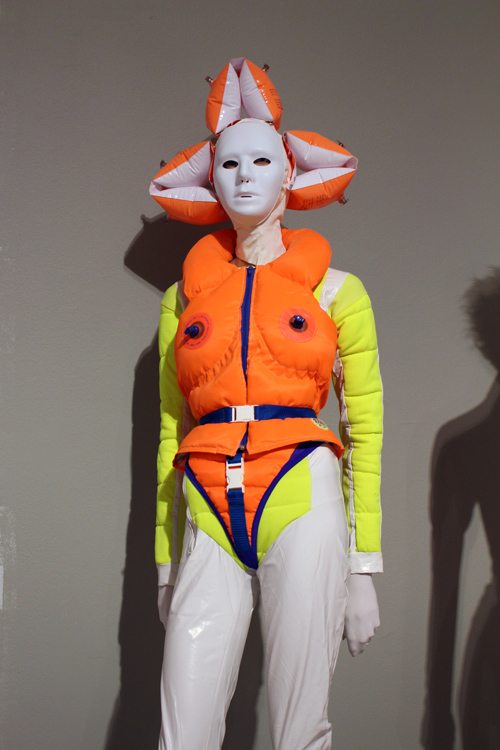
form follows function?
Unlike typical Scandinavian design with neutral colors and the heavy use of black and white, Finnish design likes a mix it up with a little use of bright colors. Pioneer was the famous fashion brand Marimekko, founded post WWII when people were in need of cheerful colors.
As I mentioned before, the Design District is home to many shops, cafés and restaurants. Doors are wide open for customers and visitors, you can spot artists and craftspeople gathering in cafés to discuss projects and events, working on jewellery etc.
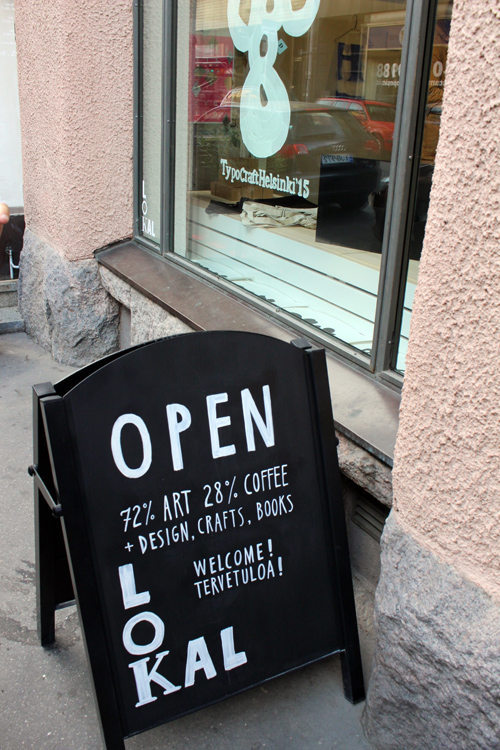
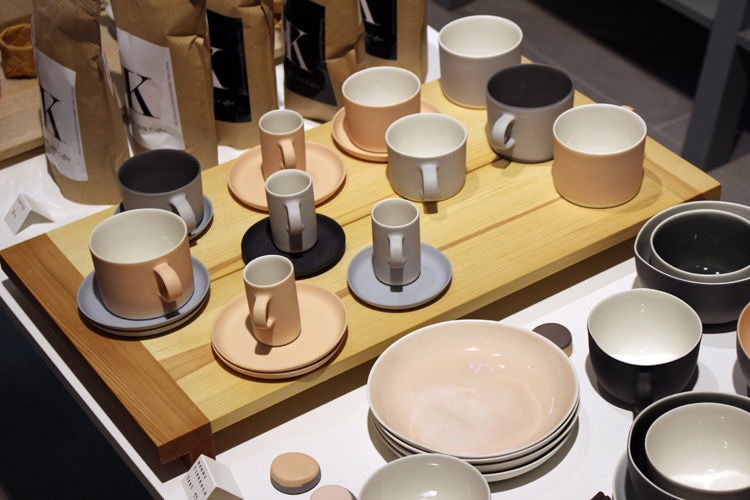
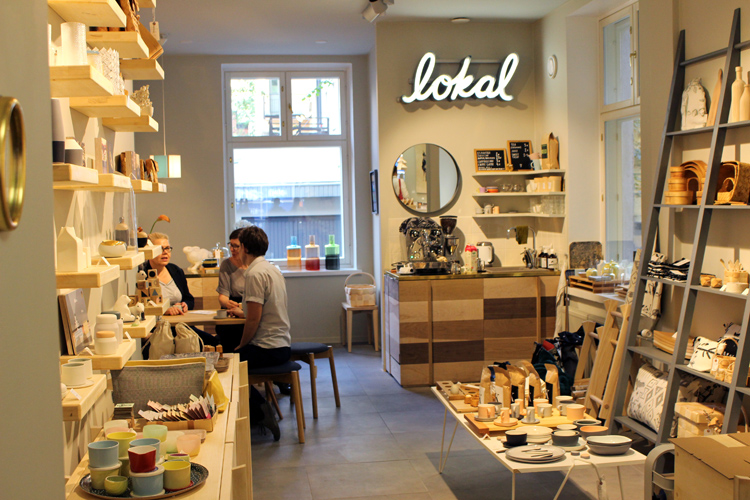
a café/concept store
During Design Week, many shops organize events to promote sales, and I figured maybe it was a great opportunity to learn something about design. When I went to a store, I discovered there wasn’t too much going on, but the friendly employee recommended another store down the street where there would be a designer talking about modern furniture design. I followed her advice and headed to the Republic of Fritz Hansen, only to find small groups of poshly (and a bit hipster) dressed people talking in Finnish about all things design…to say that I felt a bit out of my element would be a huge understatement. But I spotted another thing: food! There was a small but fancy looking buffet available with nibbles of meat, salmon, potato salad and mini hot dogs.
Just as I tried to decide what to do next, a Finnish grandma (dressed like Waldo in a red striped jumper and oddly out of place) started talking to me in rapid Finnish. I signaled that I couldn’t understand what she was saying and she seemed very disappointed (sorry Finnish grandma). We solved the language barrier by heading to the buffet and sampling the goods in a quiet corner of the store. After going for seconds and dessert, we silently left the store.
The next day, I looked up the programme description and found out that the food was prepared by a famous Finnish chef..oh well 😉 So the guy I had mistaken for a waiter was actually the chef himself…haha.
So that was quite the odd adventure, but it proves once again that food breaks barriers.
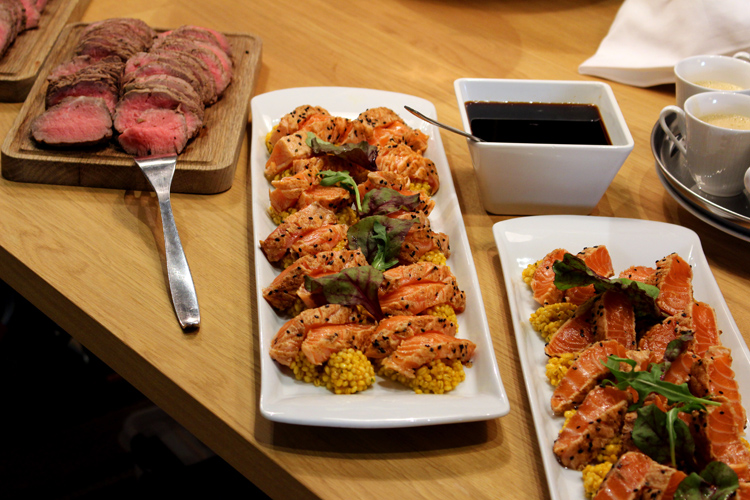
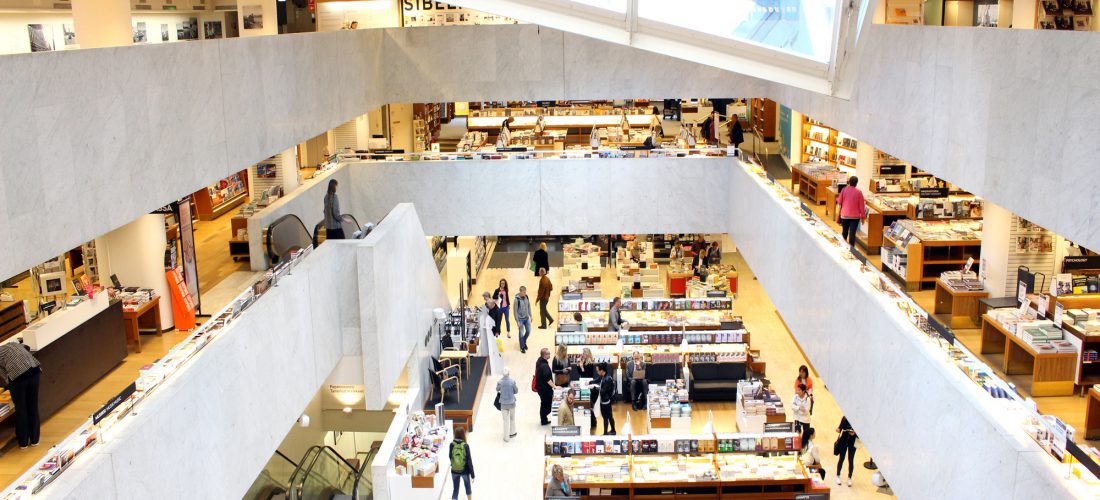
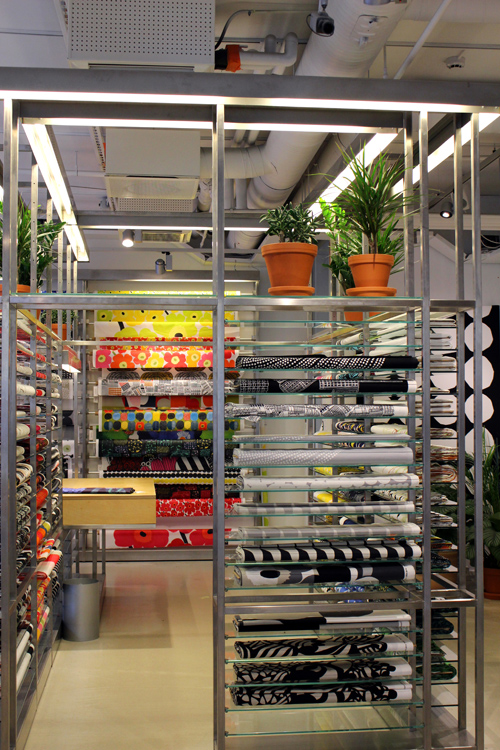
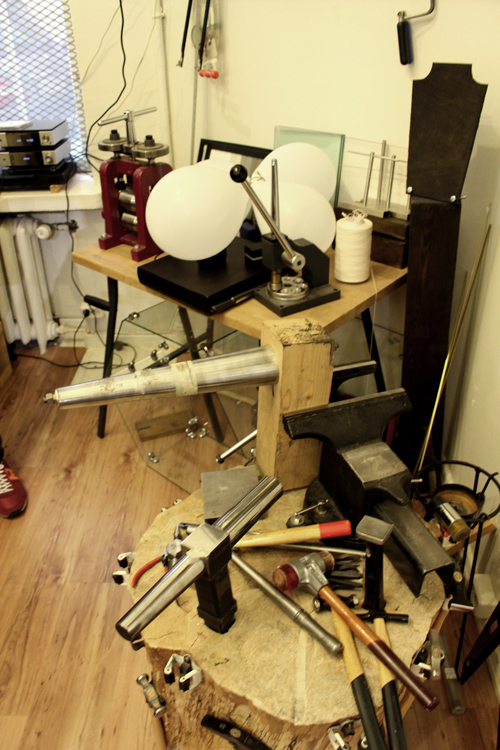
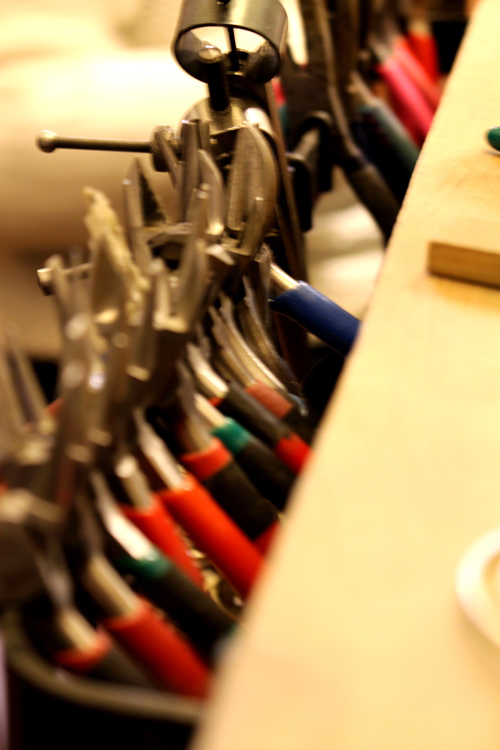
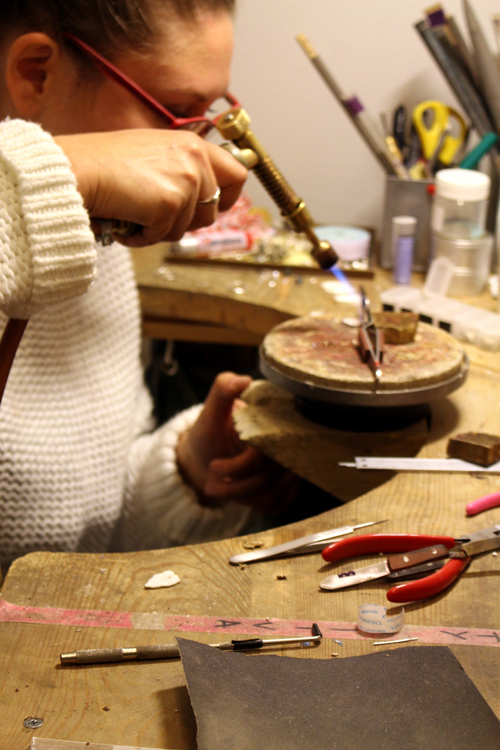
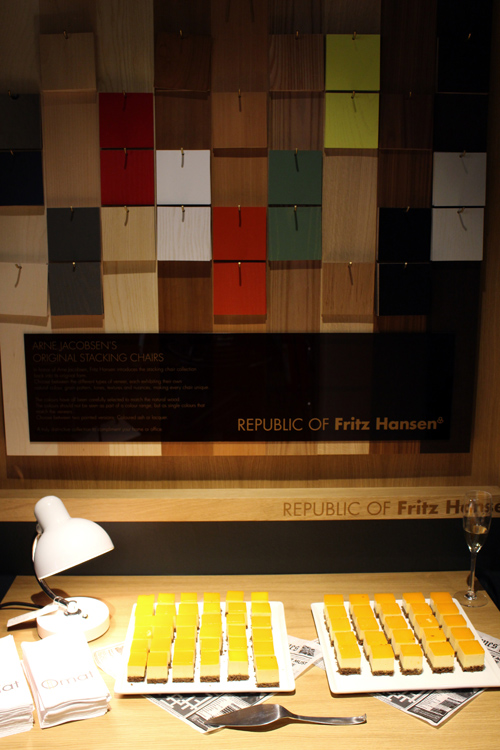
I love Your post. You wrote: “Wood is the most used material for anything from furniture or houses to kitchenware and utensils.” Well, the fact is that we have incredible wooden carvings! Most popular are carved bears. Example:
Competition de entalhamento do urso1.
Two differenta examples:
Wooden outsider art.
Wooden outsider art 2.
Tenha um dia maravilhoso!
Wow, definitely looks cool! Loved Finnish design, so urban yet close to nature